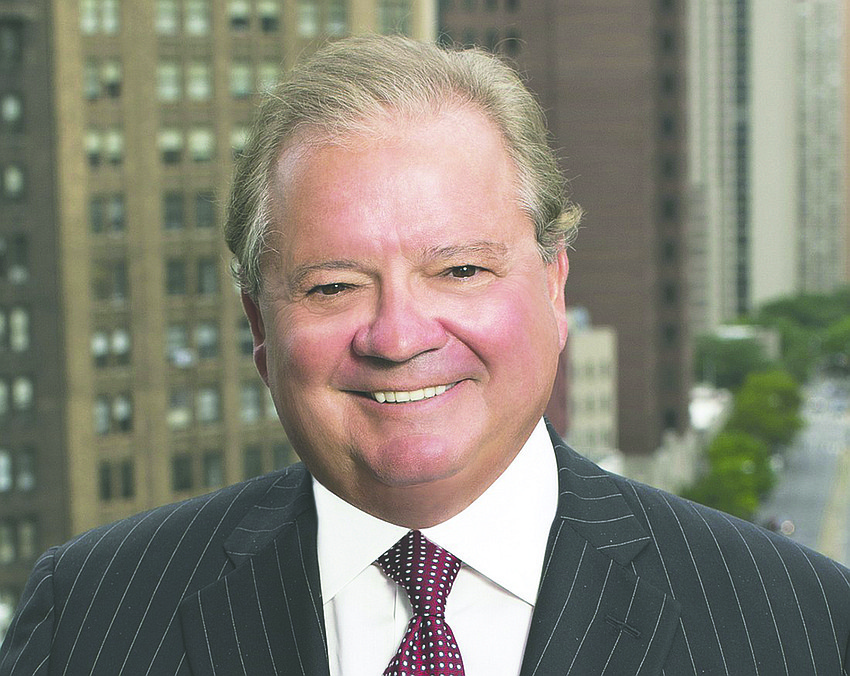
A couple in their 80s and married for 55 years told their longtime family lawyer they wanted a divorce.
Startled and incredulous, their lawyer asked, “Why now after all this time?”
Matter-of-factly, the woman replied, “We waited for our parents to die. The news would have killed them.”

Her husband added, “And now that the kids finally moved out, we can afford it.”
Everyone, even those you least expect, has struggles. The lesson of the parable of the seemingly golden couple is that you may not know the burdens others carry.
So, courtesy, respect, patience, kindness and being neighborly to all kinds of neighbors can go a long way to renew and nurture the aspirational perpetually asymptotic miracle of the United States of America.
E pluribus unum. Out of many, one.
Children of the 1950s, 1960s and 1970s can compare contemporary struggles with those of their youth. They lived through the horrors of wars hot and cold, not to mention the palpable fear of nuclear annihilation.
Many served in the military while others opposed and loudly demonstrated on campuses and public streets against the Vietnam War.
They came of age in an era indelibly marked by heart-wrenching assassinations, racial and gender discrimination and powerful currents sweeping the country for civil rights, equality and environmental protection. Political corruption, scandals and culture wars dominated the news.
While trying to move forward it helps to look back. Despite the chaos, tumult and concerns that now engulf our lives in familiar but drastically different ways, justifiably we can hope, once again, to overcome the toughest most urgent problems.
History teaches that we should have faith in the fundamental decency and resilience of the American people and the brilliant performance of the unfinished symphony of the U.S. Constitution.
Lawyers recently have been in the spotlight as much as ever. The more complex an issue, the more helpful we can be.
At their best, lawyers are problem solvers, peacemakers, architects of agreements structured to bring people together, as well as guides who help navigate new uncharted areas involving artificial intelligence, biomedical innovation, climate, uncertain intellectual property rights, as well as myriad threats to democracy and people everywhere.
We provide analysis, advice. Lawyers can be forceful, effective, creative advocates who engage others with civility and respect within professional, ethical and procedural bounds.
With the able help of competent, able lawyers we can become “one people” stronger and better because of, not despite, our differences.
In other words: Out of many, one. This was the original motto of a new nation born out of a rebellion against abuse of government power and was dedicated to upholding peoples’ right to life, liberty and the pursuit of happiness.
Initially, these evocative words referred to the 13 colonies and first states, as symbolized by the 13 letters in the Latin phrase, as well as the 13 characters (including the comma) in the English translation.
Over time, they became watchwords with a broader meaning, referring to the synergistic power of the wondrous variety of America’s people, places, perspectives and priorities.
Aspiring lawyers learn how to forge consensus out of different strongly, even passionately, held positions. They promote rules and outcomes people can abide by, even if they disagree with them.
On their first day, Jacksonville University College of Law students take an oath adapted from the Oath of Admission to The Florida Bar, the requirements of the Florida Board of Bar Examiners and JU academic integrity and student conduct rules:
“I pledge to always conduct myself with dignity and civility. I will show respect and kindness toward my classmates, professors, staff and all other people … I promise … to develop the competency and character expected of me from those who seek my aid in times of need. I will seek opportunities to provide leadership and to serve my community with confidence, integrity and ethics….”
During the long days and short years earning their J.D., these words are brought to life inside and outside the classroom by our faculty.
The essentials of professionalism are also conveyed in powerful lessons by leaders of the bench and Bar, especially through their own inspiring examples of law in action which our students regularly observe up close.
They also learn that to receive and maintain their law license, they must conduct themselves at all times in a manner that meets the character and fitness requirements for professional conduct. If anyone asks why we need another law school and more lawyers, a good answer is we need more good lawyers who are trained and capable of making us E pluribus unum.